Inside Wuhan: Ai Weiwei’s CoroNation
An important film, showing the tragedy and triumph of the first outbreak of COVID-19
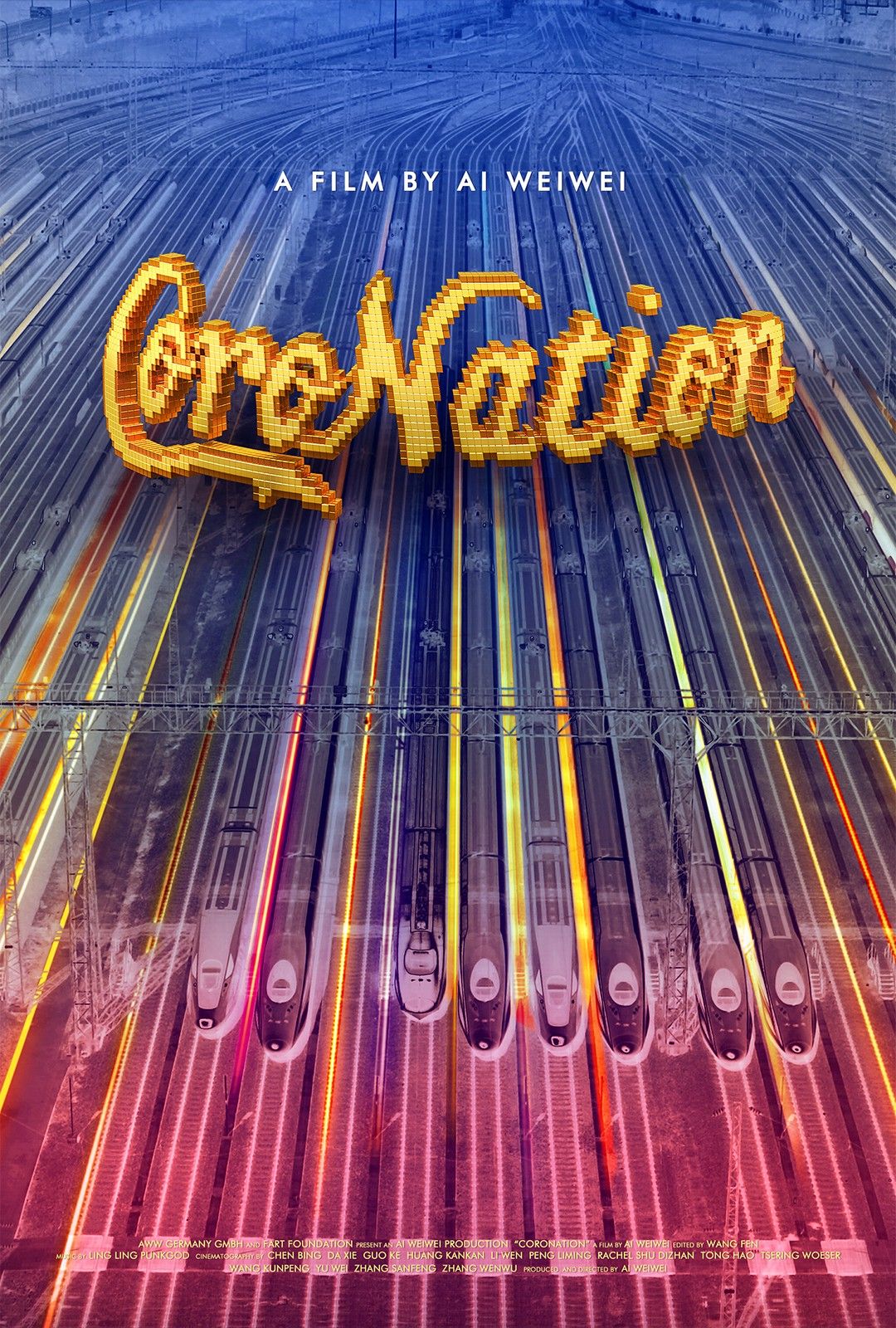
CoroNation is Ai Weiwei’s guerrilla documentary covering the outbreak in Wuhan. It’s an intense film and I will include some graphic images in this review because frankly I think you need to see them. Watching CoroNation is the most I’ve felt the horror, the boredom, the sacrifice and the loss that is COVID-19.
What Weiwei’s film accomplishes is that it feels less like a film than just visiting people in Wuhan. It’s honestly boring sometimes, but that’s life. This is life and death in Wuhan.
The Boredom
Because the filming was essentially illegal and the director in exile, what you get is the result of hundreds of hours of footage edited together. The result is that there is no central narrator or even narrative. You also spend so long with most characters that even their narratives muddle into reality.
CoroNation really feels like being somewhere, which is honestly boring a lot of the time. You look out the window, you stop for gas, you eat, then maybe somebody says something. This is then punctuated by searing images of actual COVID patients, of stunning displays of human organization, of deep scenes of grieving. And then it’s back to cooking noodles or trying to charge a phone. It’s life.
This boredom is reality. I’ve done ‘illegal’ filming and half the time you’re in a bus or in some waiting room and then you get that one shot behind the barbed wire that tells a story. And that’s all you file. So people think tragedy is somehow exciting and not 99% boredom punctuated by horror.
Most documentaries will edit out the boring parts, but Weiwei lets the footage roll. Thus, to me, watching CoroNation felt more like making a documentary than watching one. It was edited in a way that felt unedited. It felt more like visiting Wuhan than being told about it. Hence the boredom, I think, is vital. It’s real.
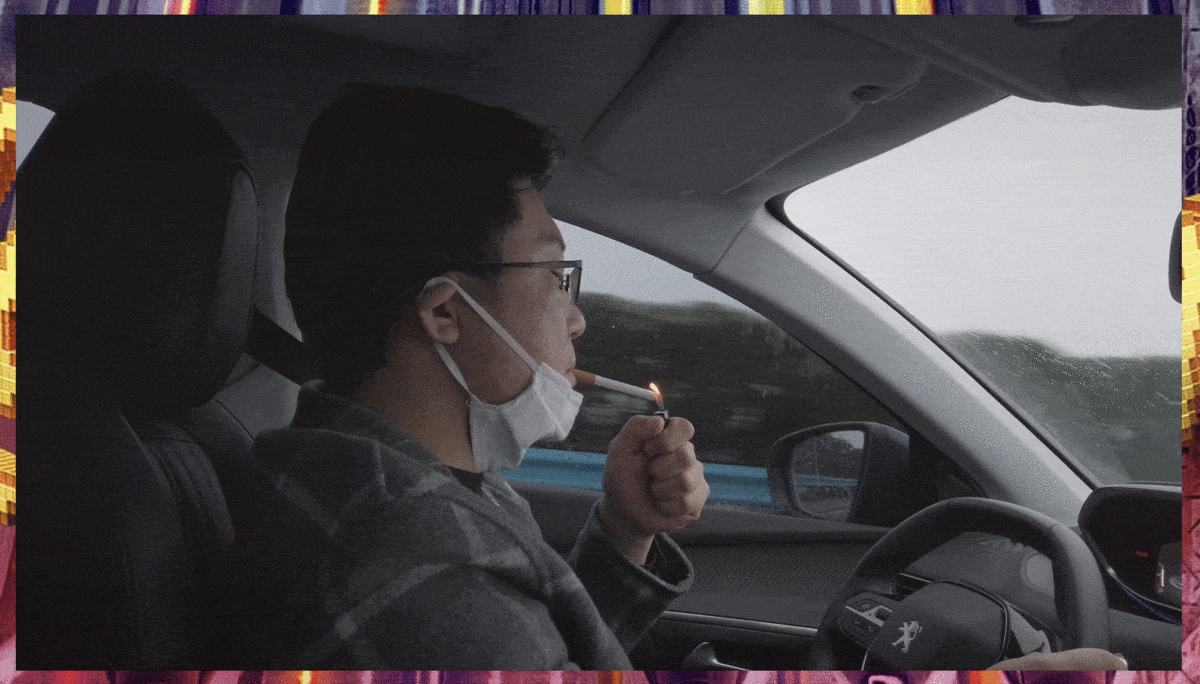
For a sense of what it’s like, the first 15 minutes of the film is just this dude driving back to Wuhan, getting stopped at checkpoints, passing frozen gas stations, stopping for food, having a cigarette. The climax is getting back to his apartment, watching him take off all his PPE, and seeing that all of his fish are dead. Is this really the most important thing happening in Wuhan? Absolutely not, but that’s how you make a documentary. That’s how you actually visit a place. You hitch a ride.
WARNING: ICU IMAGES BELOW
The Horror
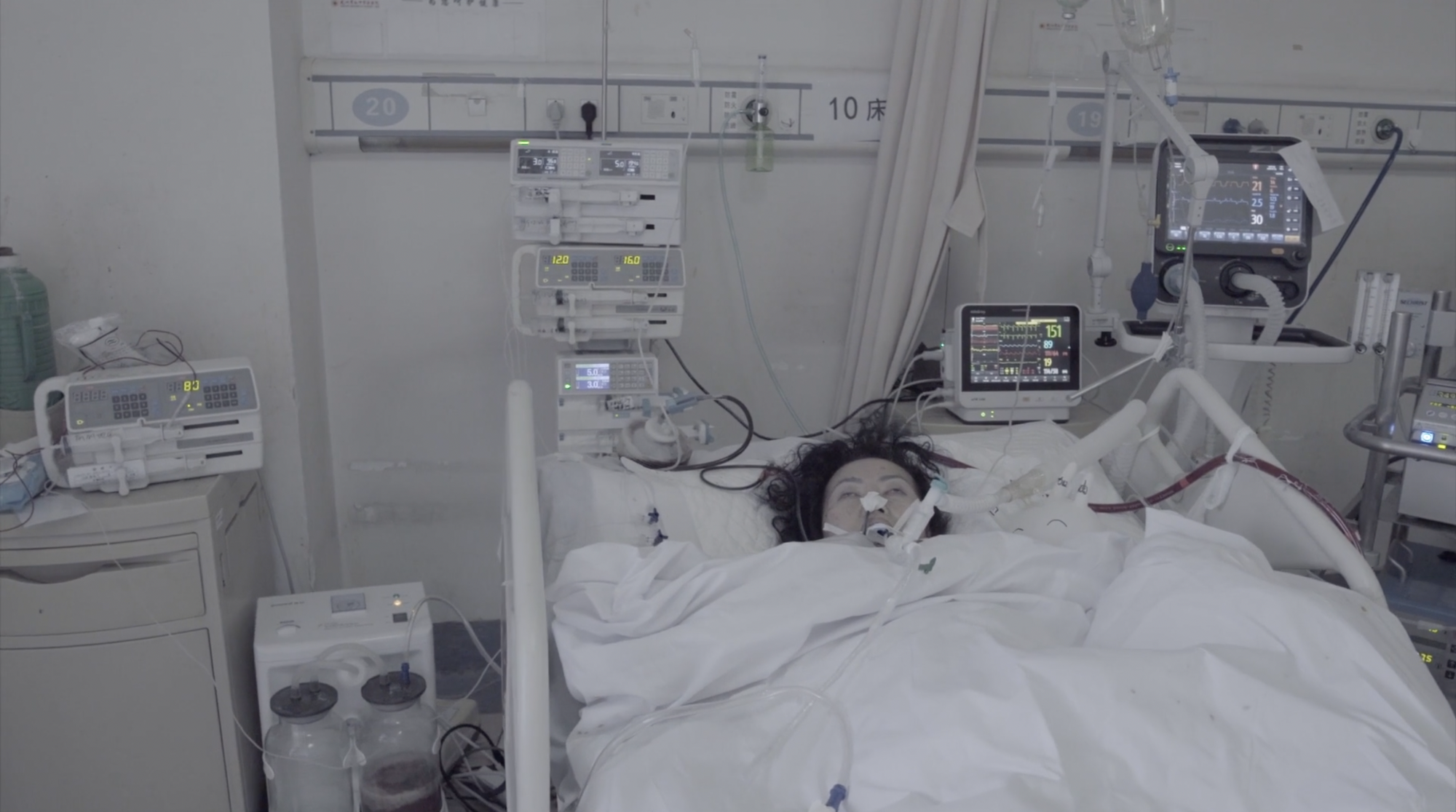
When you enter ICU with COVID-19 you disappear. Not even your family can see you, and certainly not the world. This is a tragedy, because these people then become numbers. Their suffering becomes a statistic. If more people could see what this disease does, we wouldn’t be having any stupid debate about ‘living with it’. These people are not ‘living with it’. Just look at their pallor, their unconscious eyes. They die, and a lucky few are brought back to life.
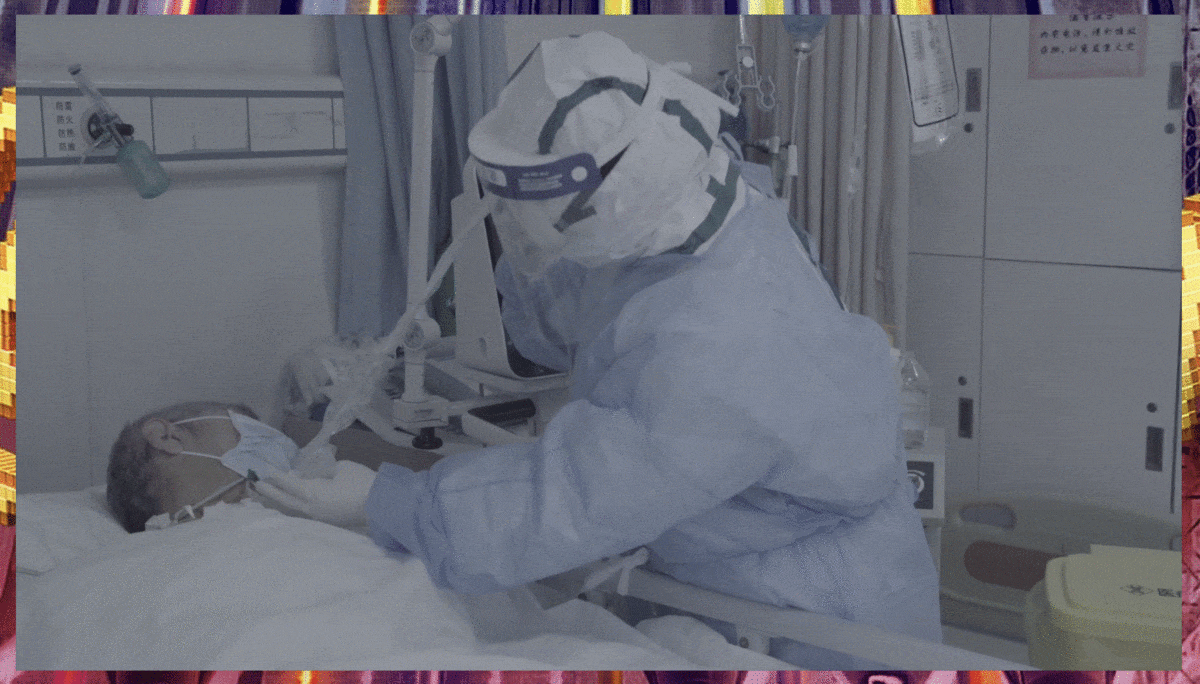
There is one gripping scene — that punctuation of horror — where a man is somehow, perhaps temporarily saved. He is a human being — someone we recognize as a human being, but just barely. His skin is a Gollum-grey, his eyes unresponsive, his body limp. His blood is outside his body, his breath is tied in tubes, he’s more machine than man. Then those machines start to beep.
A doctor runs down the hall, waddling in head-to-toe PPE like a penguin. They shine a flashlight on tubes of snaking blood, the sheer force of machinery keeping this human alive, showing its sheer inadequacy in the face of this microscopic disease.
Finally they just turn the man over and tap furiously on his back with human hands, like trying to fix a computer. It somehow works and the beeping stops. They cover his nakedness. The man is rolled back over into terrible, fish-eyed hell.
What stuck with me was how deathly, deathly grey the man was. And how hard the people were trying to save him. This was no statistic. This was a horror. Each ICU case is a horror to behold. Prior to this film I had simply never beheld it. We must look.
The Sacrifice
The most direct political commentary in this comes from an intense Communist grandma who seems both wise to the ways of the CCP and loyal. The local Wuhan government obviously fucked up at the beginning of epidemic, losing vital time. They were all fired and once the federales came into town shit got real.
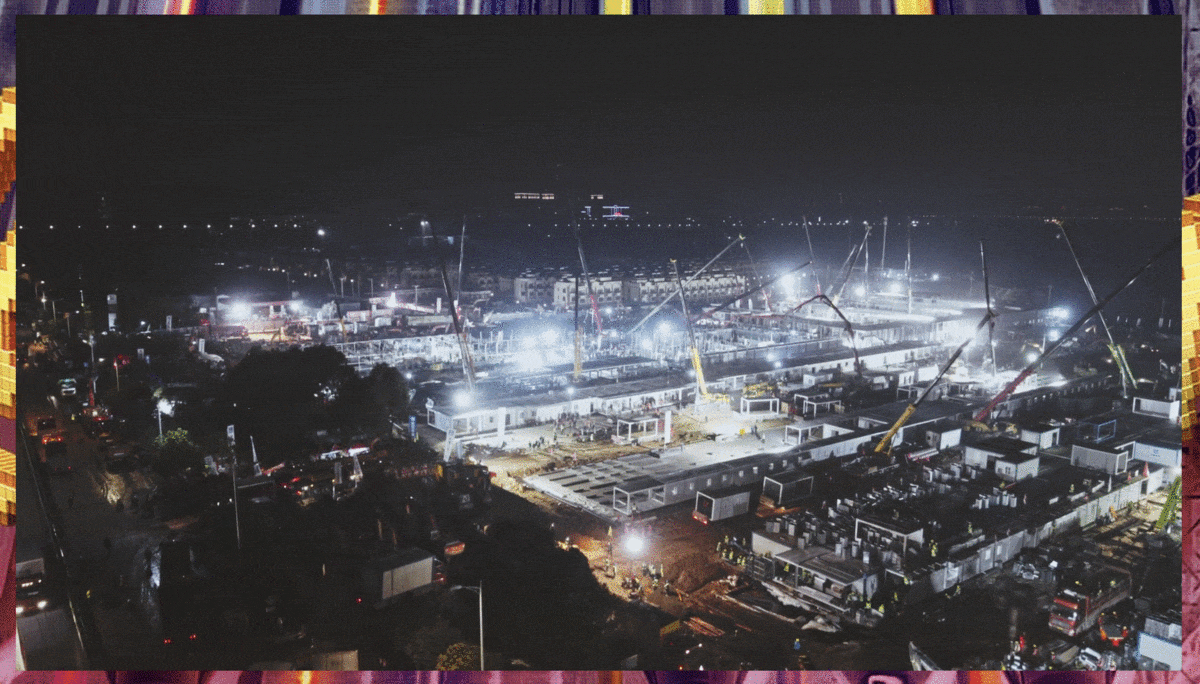
Weiwei is highly critical of the Chinese government, but what he shows is an undeniably Herculean effort on their part. Once the center took COVID-19 seriously they took it really seriously. People still blame China for not reacting sooner, but then look at western countries that still haven’t reacted. Once China reacted the force of human organization was frankly staggering.
Weiwei literally sets the scene by showing the rapid construction of massive field hospitals, but what stuck out to me was the matching jackets. It’s a minor thing, but the teams of care workers from different provinces all had matching jackets. People are holding printed signs. They’re constantly doing paperwork. This shit was organized, and it was a society that was organized in the first place.
There’s one scene where a doctor just walks down a hall for four minutes. This seems mundane but it really hits you. Every sign, every light fixture, every welded seam in that hallway was built in a few days. It is a massive feat of human organization, so massive that it is in fact boring.
This story of sacrifice is the Chinese party line and it is actually true. Their response to COVID-19 was overwhelming, over-powering, and frankly awe-inspiring. It’s undeniable that — once they woke up — they responded with overwhelming force and crushed COVID-19. You can see it in that hall.
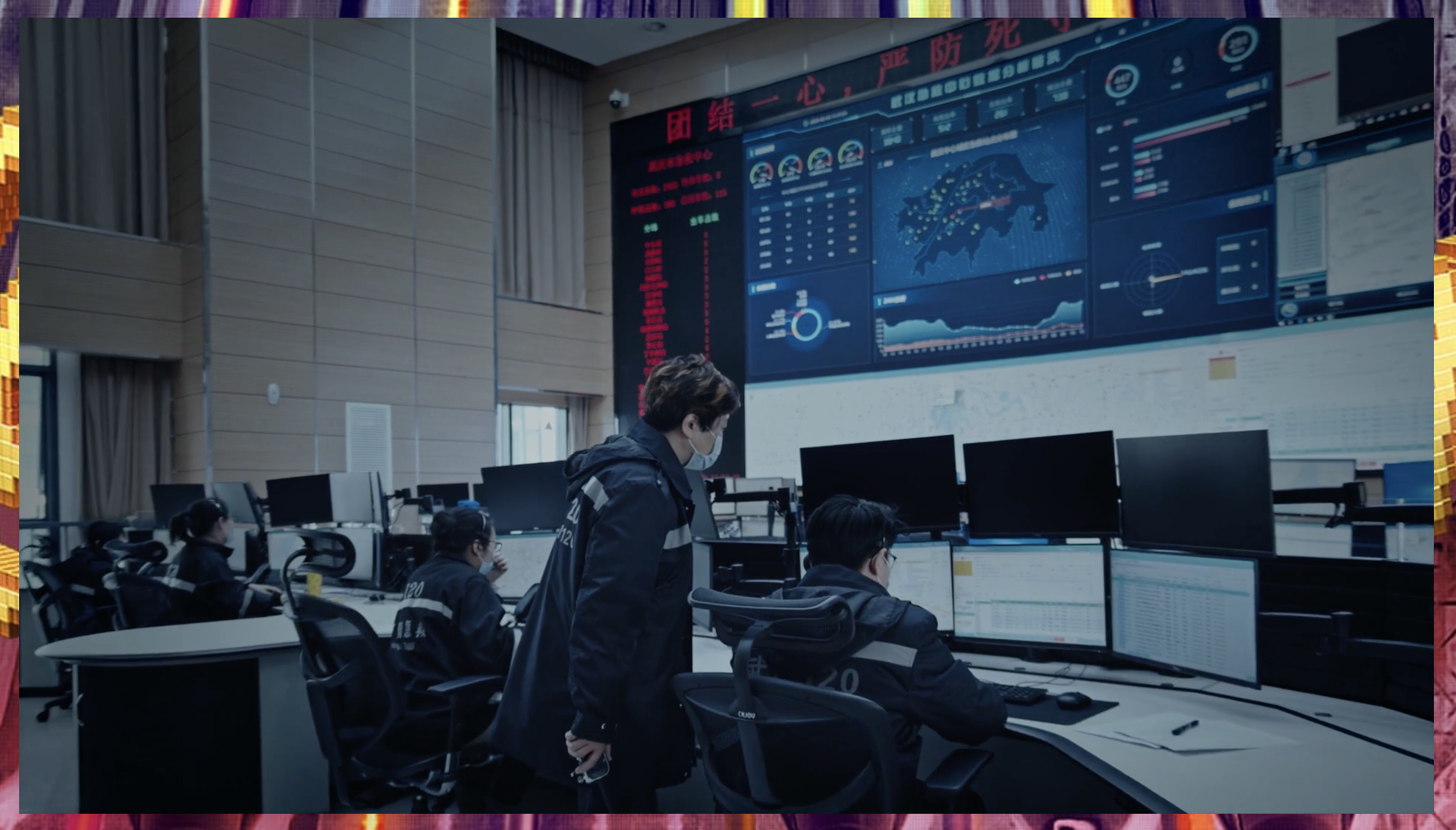
Not fucking around
Weiwei devotes even more minutes to this doctor washing his hands, putting on layers upon layers of PPE, and then even more time to him passing through multiple ‘airlocks’ to get back out. It makes our attempts at ‘social distancing’ look like a joke.
You see the vials, the syringes, the shelves, the bottles, the trays, the tubes, the sheer volume of material that needs to be delivered by a clerk somewhere, and it makes telling people to ‘just wear a mask’ seem like a charade. There’s obviously more to it. They had a goal (elimination) and did everything in their power to reach this destination. People really had to work together, and they worked hard.
You watch this and think these people are not fucking around. You compare this to American doctors microwaving their one mask and it’s a different world. People say, oh China is a draconian police state, and OK, but all of this activity is to save lives. You see these doctors literally trying to beat the air into someone’s lungs and it’s an act of great caring. Then you see the chain of construction workers, and clerks, and administrators, and cooks and cleaners even making it possible for that doctor to do their job. It’s staggering. It’s awe-inspiring. It’s good.
The Loss
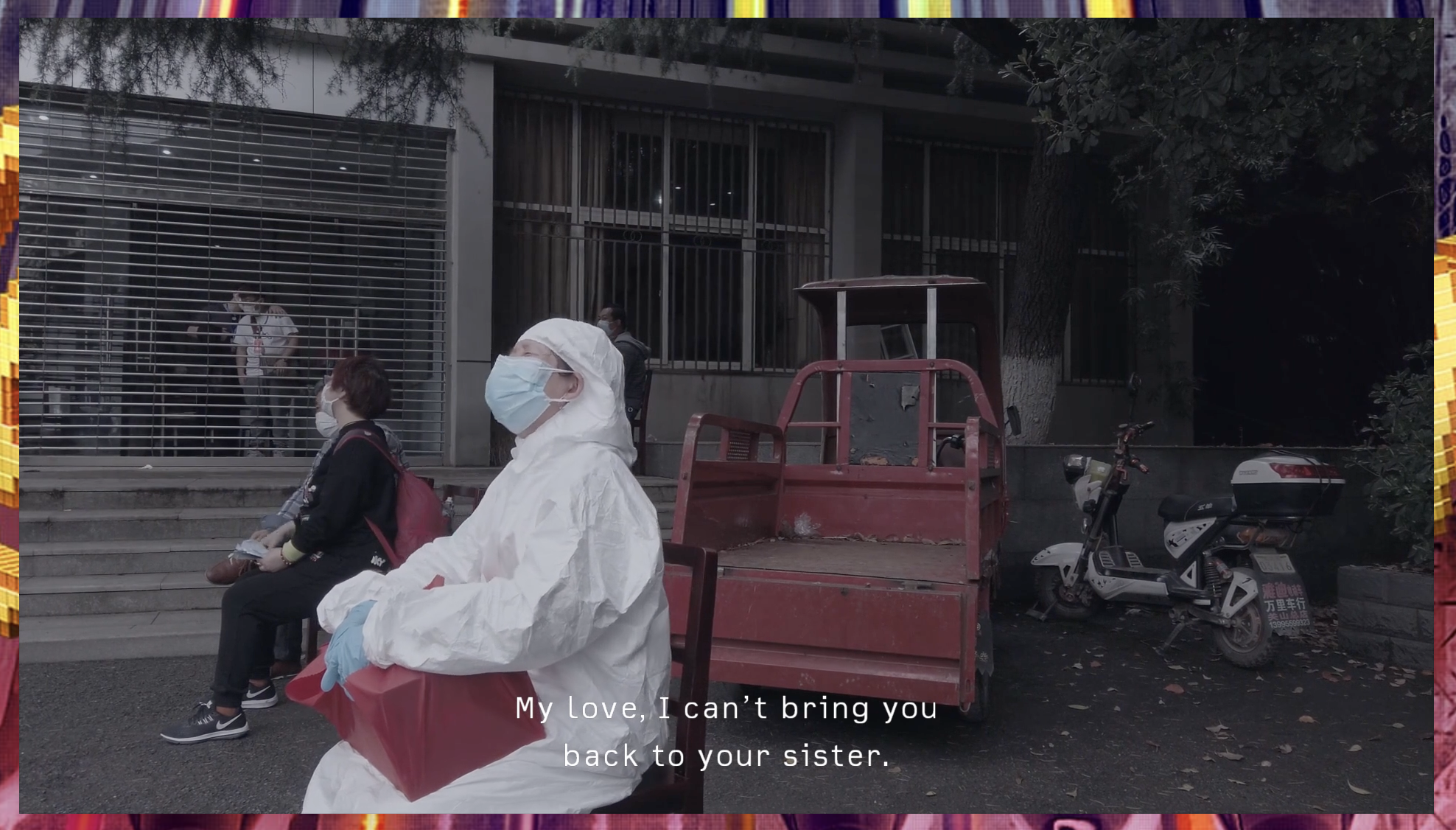
There are numerous stories of unhappy individuals in CoroNation. A construction worker built a damn field hospital and ended up stranded in Wuhan, living out of his car. People stuck in quarantine saying they don’t belong there. People unable to say good-bye to loved ones. A man trying to collect his father’s ashes without the party’s bullshit.
They are all correct and their losses are real. However, watching this a year after the Wuhan epidemic, I am struck by one thing. If each of these people had been listened to, if each position debated, if each exception made, then the epidemic would have spread across China and never stopped. If the government had been less severe, millions of people would have died. Instead they stamped it out quickly, severely, and over a billion people have their freedom today.
The fact is that this film has an end. Workers disinfect the city. All the plastic is bagged up and thrown away. People gather to collect their relatives’ ashes, wrapped in red silk. Wuhan today is completely back to normal. China is completely back to life. The most humane pandemic response is one that ends, and it’s not just that the film ends. The Chinese epidemic does.
Meanwhile the western epidemics are unending. Even if you double the recorded number of Chinese cases, Europe or America are having China’s entire epidemic every 12 hours. They have no mandatory quarantine, no enforced regulations, and almost every exception is made. These countries have individual freedom, but as societies they have collapsed. Their epidemic has gone on for a year, and will continue. Who is actually more free? The people celebrating New Year in public, or the people entering their third lockdown?
Frankly watching the individual complaints I felt like, OK, sleep in your car for a few months, everyone else needs to live. These were hard calls, but ultimately more humane. In its own way this is at least a state that cares for its people, even as it runs over the individual.
The End
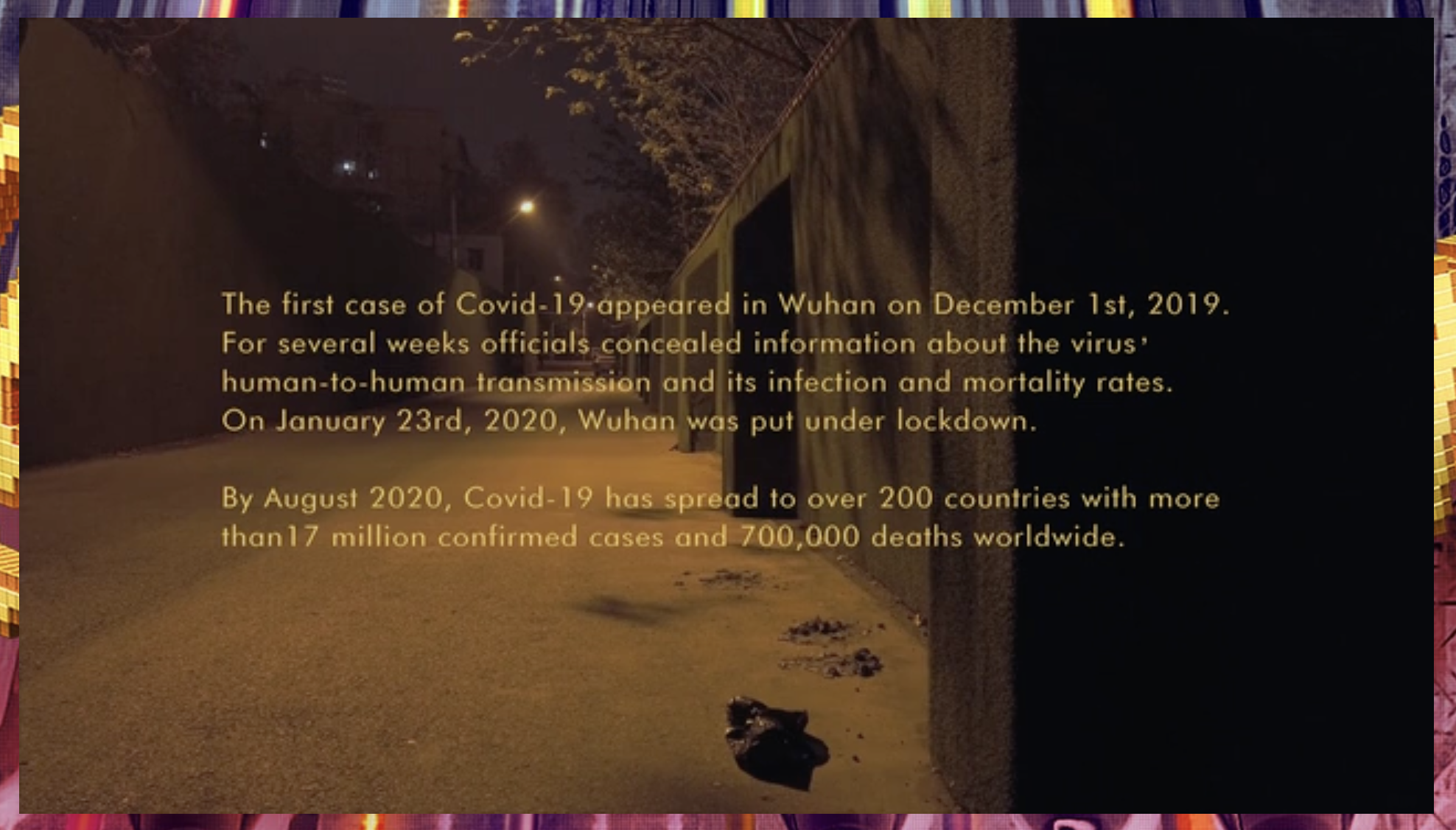
Weiwei ends with this statement, which is true, and the documentary may have played like a horror story when it was made, but seeing how the rest of the world has responded, it honestly feels like a triumph. Watching it I thought holy shit, I wish everyone was this organized. The global mess has now far eclipsed Wuhan.
The western logic is that China should have prevented this pandemic from ever happening, and that this excuses their own ongoing failures. That nothing can forgive the lost weeks in Wuhan. And yet this is blaming the victim. The fact is that Wuhan is simply where cases were detected and by that time it was likely already seeded across the world. Europe passed it on, it exploded in America, and mutated in the UK. These are all richer nations that should have been able to fight and just didn’t. There’s no excuse for that.
The fact is that western nations are still yet to properly respond. A year later, you can’t blame China.
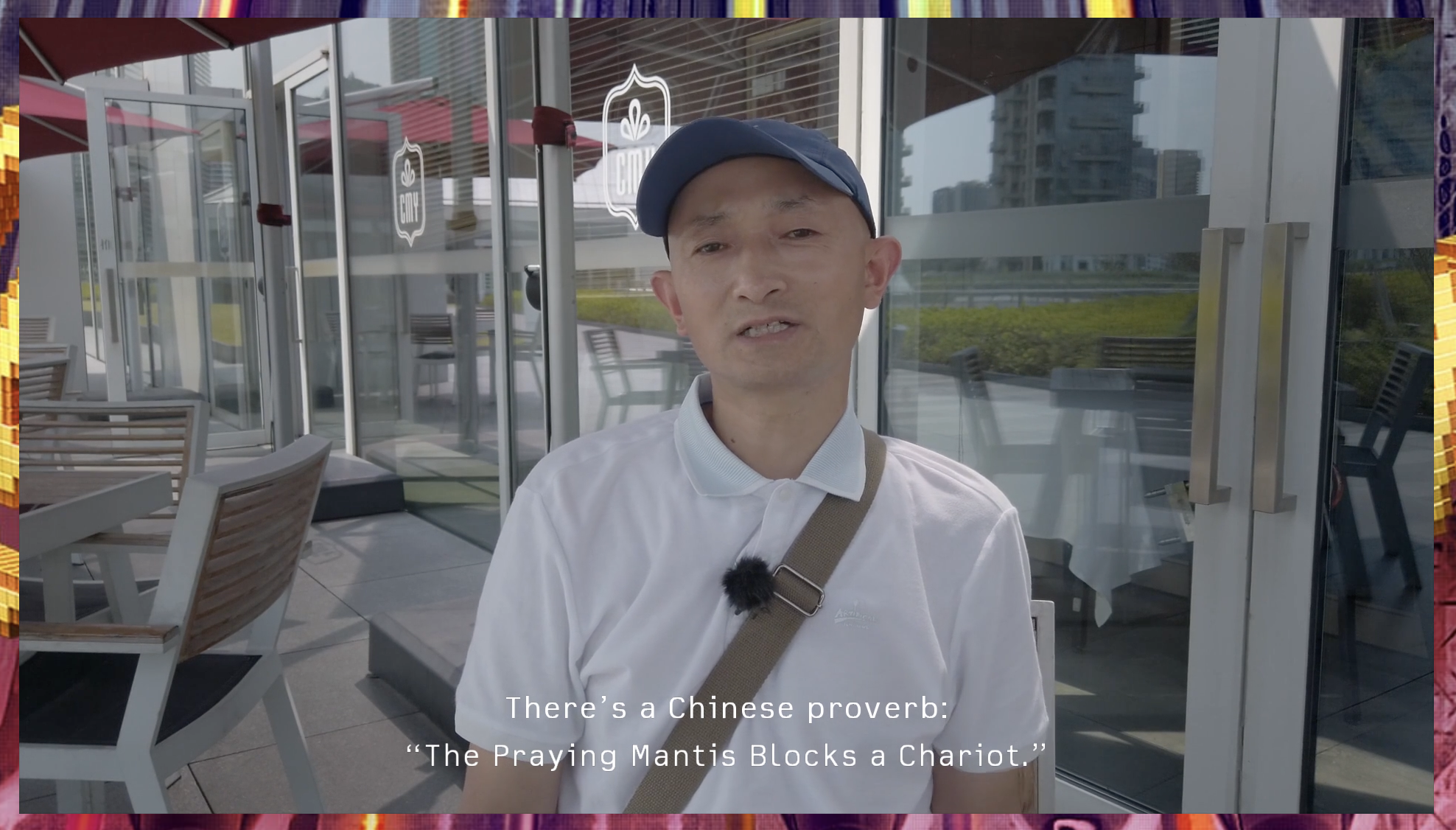
One subject compares dealing with the Chinese state to being like a praying mantis facing a chariot, and this is true. The stories of crushed individuals are true. But this chariot also crushed the disease, saving millions of lives. This may not be Ai Weiwei’s point, but he’s an artist, he may not even be trying to make a point. He just lets us into the living rooms and hospital beds and parked cars of Wuhan.
The fact is that this story has a beginning, a middle and an end not because the director scripted it that way, but because a government and millions of people made it happen. That’s the most striking thing about CoroNation. It ends.
You can rent Coronation for $5 on Vimeo. Do not bring popcorn.